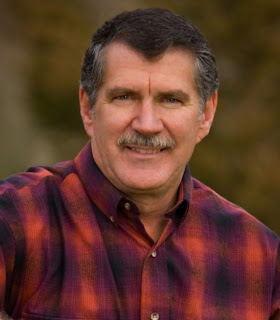Actually, it isn’t just detractors who call it that. None other than President Obama’s key advisor David Axelrod had this to say recently:
David Axelrod, Obama’s chief strategist, sent out an email saying: "I like Obamacare. I'm proud of it -- and you should be, too. Here's why: Because it works. So if you're with me, say it: 'I like Obamacare.’”
The way I see it, if David Axelrod can call it Obamacare, so can “detractors.”
Like it or not, “Obamacare” has entered the political lexicon permanently, and no amount of revisionism is going to be able to get rid of it. Given what a budget-buster it will be if fully enacted, calling it the official name of the “Affordable Care Act” deserves scare quotes more than does Obamacare.
Dennison is to be commended, however, for discussing, later in the piece, Republican Congressional proposals for health care reform that Rehberg supports -- it isn’t just about saying “no.” All of this may be moot, however. The fact is that Obamacare is one of the most sweeping and expensive pieces of legislation in decades. It is deeply unpopular in Montana, and Tester voted for it anyway. Had he bucked the President and voted with his constituents rather than with his party on this issue, there is a good chance that he would be coasting to re-election rather than fighting for his political life.
* * * * *
Unsurprisingly, AG Steve Bullock has a big lead in funds on hand compared to former Congressman Rick Hill. Hill had a bruising 7-way primary and took some sharp hits from his fellow Republican candidates along the way -- it costs money to win contested primaries. Charles Johnson, in his piece on the subject, predicts that Hill will make up a lot of that ground -- the question is not where things stand now, but what will happen with fundraising from here on out.
The most depressing part of the article is the statement that both Hill and Bullock are probably spending 96% of their time on fundraising. Based on what I have seen of statewide races in Montana, especially for governor, this is spot-on. Needing to raise more than $1 million in increments no larger than $500, candidates for governor literally spend months on end doing nothing but being personally on the phone, asking for donations. Yes, they speak at party gatherings and what-not, but these are mere interruptions in their primary job, which is to be glorified telemarketers. I ask you, is this any way to elect our statewide officials? If contribution limits were to be brought into the 21st century (or better yet, eliminated altogether), candidates could actually spend more of their time actually campaigning -- talking to Montana voters, studying the issues, and preparing policy statements.
Contribution limits are supposed to keep large contributors from “buying” elective office for their candidates of choice, but what average person has the time to live on the phone for months on end, asking for contributions? Increasingly, elective office all across the country is becoming the realm of the wealthy, who can afford to have their working lives stop for a year or more while they fundraise and campaign (mostly the former), and in many cases the truly wealthy can underwrite much of their own campaigns.
Outside organizations have always been able to pour money into races, and this election cycle is no exception, but in general these organizations will only invest money when the candidate has proven an ability to raise money himself. Furthermore, since outside groups can’t coordinate with the candidate, the candidate has no ability to control the message -- increasingly, the truly greasy things are done by outside groups so the candidate can shrug his shoulders and say “I had nothing to do with it -- in fact, I’m not even allowed to talk to them.” There is always mud slung in campaigns, but when big money is forced into outside groups, the candidates don’t have to take responsibility for any of it.

No comments:
Post a Comment